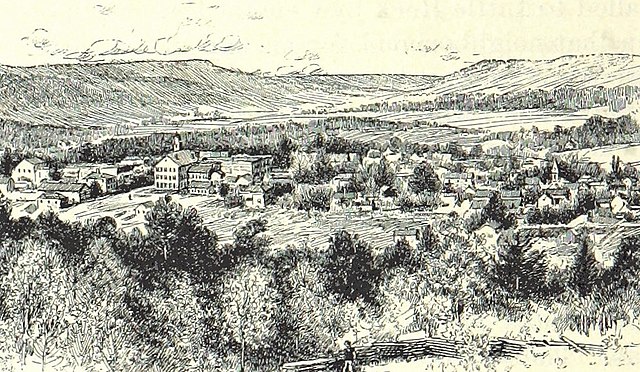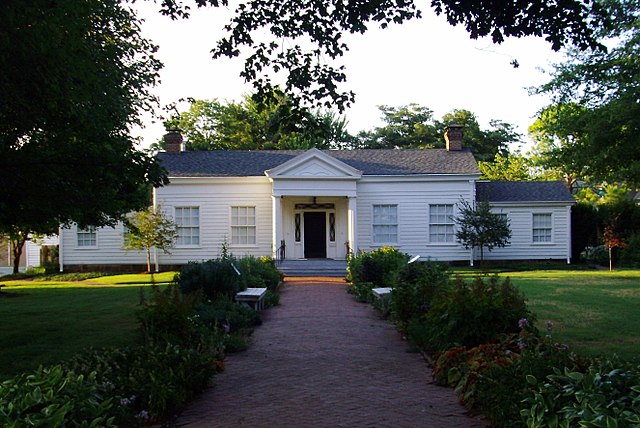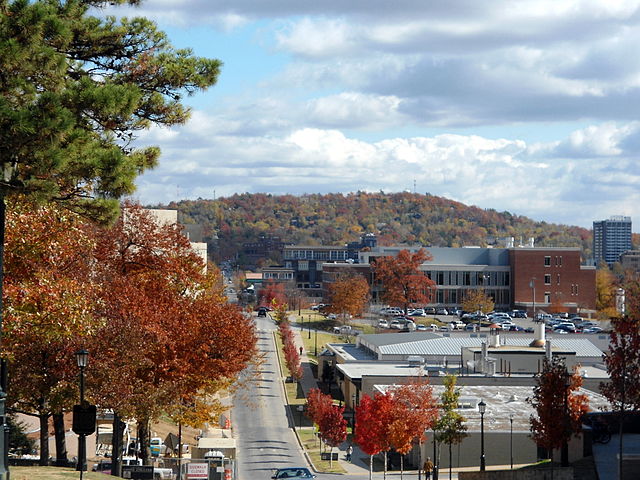Donald W. Reynolds Razorback Stadium
Donald W. Reynolds Razorback Stadium is an American football stadium in Fayetteville, Arkansas and serves as the home field of the University of Arkansas Razorbacks football team since its opening in 1938. The stadium was formerly known as Razorback Stadium since 1941 before the name of Donald W. Reynolds, an American businessman and philanthropist, was added in 2001. The playing field in the stadium is named Frank Broyles Field, honoring former Arkansas head football coach and athletic director Frank Broyles.
Donald W. Reynolds Razorback Stadium
The Razorback football team takes the field
Arkansas v Alabama game in 2014
The Razorback Marching Band in formation
Fayetteville is the second-most populous city in Arkansas, the county seat of Washington County, and the most populous city in Northwest Arkansas. The city is on the outskirts of the Boston Mountains, deep within the Ozarks. Known as Washington until 1829, the city was named after Fayetteville, Tennessee, from which many of the settlers had come. It was incorporated on November 3, 1836, and was rechartered in 1867. Fayetteville is included in the three-county Northwest Arkansas Metropolitan Statistical Area, which is ranked 100th in terms of population in the United States with 576,403 in 2022 according to the United States Census Bureau. The city had a population of 99,285 in 2022.
Fayetteville, c. 1887
"Colonel Tebbetts place" served as U.S. forces headquarters during the Battle of Fayetteville and is operated today as a museum about the conflict.
The split between the Springfield Plateau and the Boston Mountains occurs in the center of Washington County, Arkansas, very near Fayetteville. The rough, mountainous terrain south of Fayetteville is the Boston Mountains while the more-habitable Springfield Plateau contains the cities of Springdale, Bentonville and Rogers to the north.
Mount Sequoyah rises above Fayetteville on the city's eastern side








